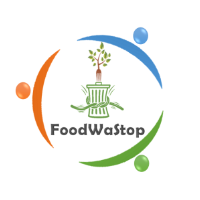FoodWaStop will address six challenges through the activities of six interconnected Working Groups (WGs), answering the following questions:
Challenge 1: Which transition steps need to be taken to work together in an efficient and coherent way to raise awareness for reduce FLW?
Contribution to a science-based strategy to reduce FLW in the EU and globally, by defining a model that can be used in the Inclusiveness Target Countries (ITC), Mediterranean non-EU Countries, and other non-COST Countries.
Challenge 2: How can business enterprise benefit from the exchange of good practices?
Creation of a Network throughout Europe, with a multidisciplinary group of experts from COST and non-COST Countries, by involving researchers, and business enterprise that will accelerate its implementation within sustainable food security.
Challenge 3: How can citizen science contribute to quantify FLW?
Creation of a robust database that will gather the available information to quantify FLW. This database will also highlight the main weaknesses in FLW information. This Network will be beneficial for all stakeholders, starting with the policy makers, and including all the agrofood chain operators.
Challenge 4: How redesign the upstream food supply chain toward sustainability and saving resources?
Improvement and harmonisation of FLW monitoring systems through the supply chain.
Challenge 5: How can smart solution play a key role at all levels to reduce FLW?
Integration of the main FLW players, in which Mediterranean Countries and experts from COST and non-COST Countries will be included to establish smart solution.
Challenge 6: How the network can advance knowledge and skills to transfer the research results to relevant stakeholders, medium-sized enterprises (SMEs), farmers and be practice in industrial level?
Development of an inventory of effective technologies to prevent, manage, quantify and valorise FLW based on the expertise and knowledge gathered from the Network.
-
Working Group 1
Learn more: Working Group 1 -
Working Group 2
Learn more: Working Group 2 -
Working Group 3
Learn more: Working Group 3 -
Working Group 4
Learn more: Working Group 4 -
Working Group 5
Learn more: Working Group 5 -
Working Group 6
Learn more: Working Group 6
